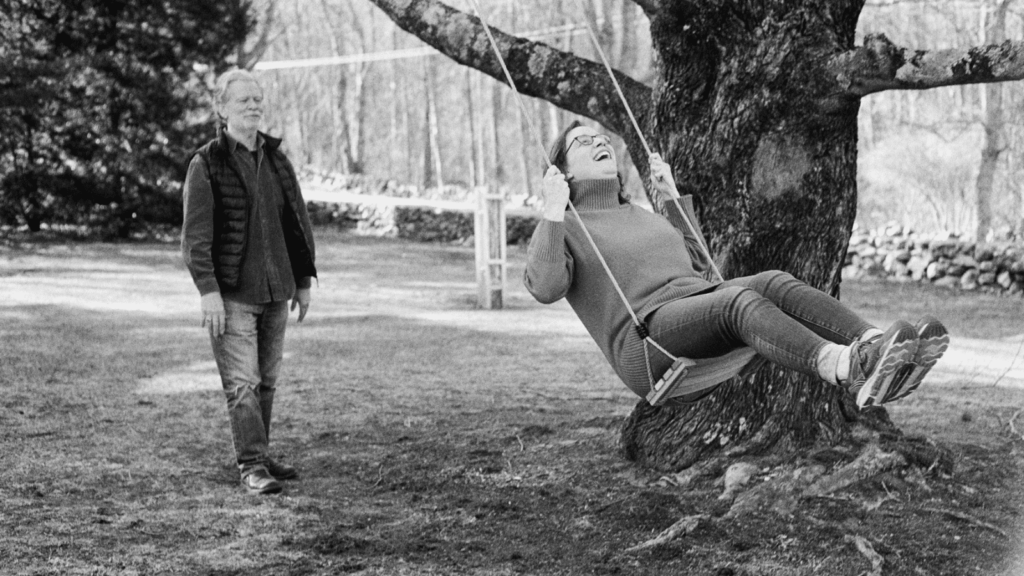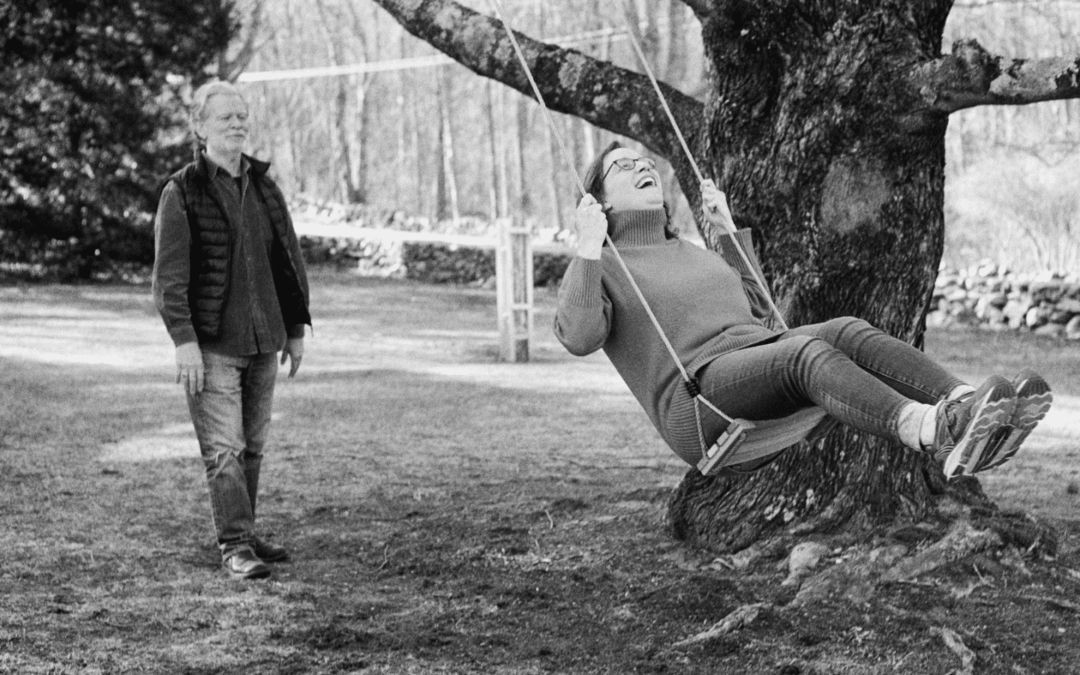
Gara LaMarche pushes his wife, Lisa, on a swing.
I’ve been a fan of the encore career concept that CoGenerate and its founder, Marc Freedman, have done so much to advance, ever since I first learned about it while president of The Atlantic Philanthropies. At the time, our program on aging was a major supporter of Encore.org and the prestigious Purpose Prize (now being sponsored by the AARP). I keynoted one of the Purpose Prize ceremonies, hired leaders over 65 for key positions at Atlantic, and advised many friends and colleagues on their encore chapters.
Yet it only just dawned on me that I am now in my own encore career.
I am 67 years old and have spent my entire working life in human rights, social justice and philanthropic organizations, from the ACLU to the Open Society Foundations to the Democracy Alliance. After I turned 65, despite a rich life outside work, I knew I wasn’t ready to retire in the usual sense of the word, financially or otherwise.
Yet I felt ready to step back from running organizations. I felt particularly strongly about this as an older white man whose work provided a terrific perspective on the vibrant community of younger leaders of color and women who are more than ready to lead. I wanted to shift my role in the world to supporting them in any way I can.
So over the last few years, as I prepared to give up my leadership position — which I did at the end of June — I thought about what would give me the most meaning and satisfaction. I decided I wanted a variety of platforms and activities that would draw on my life’s interests and passions and whatever capacities I’ve honed over the decades.
At the Colin Powell School at City College of the City University of New York, I am a Senior Fellow, teaching courses on leadership and human rights and helping to create a Leadership Center for Democracy and Social Justice to train young activists for lives working for social change.
At The Raben Group, a DC-based firm specializing in strategy, government relations and communications, I’m a Senior Adviser working with an extremely diverse team – 70 percent people of color – on a range of projects from diversifying the federal judiciary to lifting up the voices and representation of Latinx people.
And at CoGenerate, I’m a Senior Fellow working to strengthen co-generational ties and initiatives in the social justice community.
I no longer have a business card – who would I give it to in our still-largely virtual pandemic world, anyway? – but note that all of my titles have “senior” in them. I was given lots of responsibility in my early twenties and was often the youngest person in the room. Forty-some years later, I am reveling in my senior status, where I am often the oldest.
Age almost by definition means you have more experience with many things, but wisdom does not always come along with that. I’ll let others be the judge of how wise I am. But I have learned a lot from my mistakes and successes, and if that can be useful to younger leaders, it’s a privilege to share that knowledge.
At the same time, as I’ve felt throughout my career, the learning goes both ways. My work in human rights and philanthropy was deeply enriched by engagement with younger staff and leaders, and since I want to keep learning, I need to have that as an element of my encore work.
I’ve only been at this a few months, but I am enjoying my new life immensely. I’m very busy – in addition to what I’ve listed above, I have a variety of other teaching, writing and consulting projects, and serve on a half-dozen boards. But I don’t feel as busy as I have for much of my previous work life, and I’ve thought about why.
I’ve found there is a considerable dividend in reduced time and stress after stepping down from a leadership position. Some leaders face an unsettling void when they step away from the day-to-day action, which is why many cling to their positions for such a long time. I don’t feel that way, at least not now.
For the first time in many years, I have no principal responsibility for any institution. While I owe some of my time and best thinking to the gigs I have, I don’t really work for anyone, and no one works for me. I have no budget to submit or monitor, no staff check-ins to conduct, and no board meetings to prepare for. And the fundraising I do, which remains a lot, is for the other people’s initiatives, not to keep the lights on, the rent paid, and paychecks coming for my own colleagues.
Turns out, as much as I enjoyed — or at least didn’t mind — doing all those things, it’s very liberating not to. If I have a few hours free on a given day when I’m not involved in some kind of meeting or teaching one of my classes, I might write or catch up on email. Or I might go out in the yard to prune the lilac bush or hop on my bike or get in the car to drive to the beach for a swim. In my former work life, with rare exceptions, I felt the traditional work day belonged to my employer. I wouldn’t have felt comfortable “playing hooky.” But now my time is more my own.
To some extent, the changed work dynamics brought on by the pandemic have shaken things up for many people, not just for people at my time in life. When you work from home, you can sort the laundry, stir a stew or practice the piano in odd bits of time that come your way. Alternatively, at nine at night, after the kids are in bed, instead of watching Squid Game, you can answer email or read the draft of a briefing paper if you like. The boundaries are more porous, with both dangers and opportunities.
My experience over the past few months, which have been among the most joyful and productive of my working life, has me thinking: Why should anyone have to wait for an encore career to have more control of their time and to weave spontaneous moments of life into their work day?
Do we really need as many staff meetings as most people endure in a given week? Are they being used effectively? What kind of time and energy would be liberated by different structures and practices? More fundamentally, what can each of us do to build more purpose into work well before our closing decades?
Considered that way, the encore career movement has benefits not just for people like me, but has the capacity to reshape the narrative about work and life for everyone, at every age.
Gara LaMarche is a Senior Fellow at CoGenerate.

